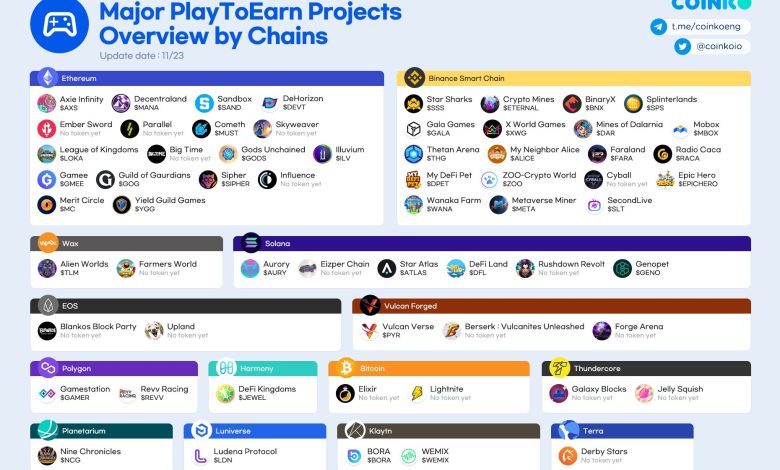An Overview of Major Cryptocurrency Projects

- Introduction to Cryptocurrency Projects
- Exploring the Top Cryptocurrency Projects
- Key Players in the Cryptocurrency Industry
- A Closer Look at Major Cryptocurrency Projects
- Comparing Different Cryptocurrency Projects
- The Future of Cryptocurrency Projects
Introduction to Cryptocurrency Projects
Cryptocurrency projects are innovative initiatives that leverage blockchain technology to create decentralized digital assets. These projects aim to revolutionize various industries by offering secure, transparent, and efficient solutions for transactions and data management. Some of the major cryptocurrency projects include Bitcoin, Ethereum, Ripple, Litecoin, and Cardano. Each project has its unique features and use cases, catering to different needs in the market.
Bitcoin, the first cryptocurrency ever created, is known for its decentralized nature and limited supply, making it a popular choice for store of value and peer-to-peer transactions. Ethereum, on the other hand, introduced smart contracts, enabling developers to build decentralized applications (dApps) on its platform. Ripple focuses on facilitating cross-border payments for financial institutions, while Litecoin offers faster transaction speeds compared to Bitcoin. Cardano, with its focus on scalability and sustainability, aims to provide a secure and scalable blockchain platform for the future.
These cryptocurrency projects have gained significant traction in the digital asset space, attracting investors, developers, and users from around the world. As the blockchain technology continues to evolve, these projects are expected to play a crucial role in shaping the future of finance, technology, and various other industries. Stay tuned to learn more about the latest developments and innovations in the world of cryptocurrency projects.
Exploring the Top Cryptocurrency Projects
When exploring the top cryptocurrency projects, it is important to consider a variety of factors that contribute to their success and popularity in the market. These projects are known for their innovative technology, strong development teams, and active communities. Let’s take a closer look at some of the major cryptocurrency projects that have made a significant impact in the industry:
- Bitcoin (BTC): Bitcoin is the first and most well-known cryptocurrency, often referred to as digital gold. It was created by an unknown person or group of people using the pseudonym Satoshi Nakamoto in 2009. Bitcoin operates on a decentralized network called blockchain, which ensures security and transparency in transactions.
- Ethereum (ETH): Ethereum is a decentralized platform that enables developers to build and deploy smart contracts and decentralized applications (dApps). It was proposed by Vitalik Buterin in late 2013 and development began in early 2014, with the network going live on July 30, 2015.
- Ripple (XRP): Ripple is a digital payment protocol that enables fast, low-cost cross-border transactions. It was created by Ripple Labs Inc. in 2012 and has gained popularity among banks and financial institutions for its efficient payment solutions.
- Litecoin (LTC): Litecoin is a peer-to-peer cryptocurrency created by Charlie Lee in 2011. It is often considered the silver to Bitcoin’s gold, as it shares many similarities with Bitcoin but offers faster transaction times and lower fees.
- Cardano (ADA): Cardano is a blockchain platform that aims to provide a more secure and scalable infrastructure for the development of decentralized applications and smart contracts. It was founded by Charles Hoskinson, one of the co-founders of Ethereum, in 2017.
These are just a few examples of the top cryptocurrency projects that have gained widespread adoption and recognition in the industry. Each project has its own unique features and use cases, catering to different needs and preferences of users in the cryptocurrency space. By staying informed and keeping up with the latest developments in these projects, investors and enthusiasts can make informed decisions about their involvement in the cryptocurrency market.
Key Players in the Cryptocurrency Industry
When it comes to the cryptocurrency industry, there are several key players that have made a significant impact on the market. These projects have gained popularity and recognition for their innovative technology and unique features. Let’s take a closer look at some of the major cryptocurrency projects:
- Bitcoin (BTC): Bitcoin is the first and most well-known cryptocurrency in the world. It was created by an unknown person or group of people using the pseudonym Satoshi Nakamoto in 2009. Bitcoin operates on a decentralized network called blockchain, which allows for secure and transparent transactions.
- Ethereum (ETH): Ethereum is a decentralized platform that enables developers to build and deploy smart contracts and decentralized applications (dApps). It was proposed by Vitalik Buterin in late 2013 and development began in early 2014, with the network going live on July 30, 2015.
- Ripple (XRP): Ripple is a digital payment protocol that enables fast and low-cost cross-border transactions. It was created by Ripple Labs Inc., a technology company founded in 2012. Ripple aims to make international money transfers more efficient by using blockchain technology.
- Litecoin (LTC): Litecoin is a peer-to-peer cryptocurrency created by Charlie Lee in 2011. It is based on the Bitcoin protocol but with some differences, such as a faster block generation time and a different hashing algorithm. Litecoin is often referred to as the “silver to Bitcoin’s gold.”
- Cardano (ADA): Cardano is a blockchain platform that aims to provide a more secure and scalable infrastructure for the development of decentralized applications and smart contracts. It was founded by Charles Hoskinson, one of the co-founders of Ethereum, in 2017.
These are just a few of the major cryptocurrency projects that have gained prominence in the industry. Each project has its own unique features and use cases, contributing to the overall growth and development of the cryptocurrency market.
A Closer Look at Major Cryptocurrency Projects
When taking a closer look at major cryptocurrency projects, it is important to consider the various aspects that make each project unique. One such project is Ethereum, which is known for its smart contract functionality and decentralized applications. Another prominent project is Ripple, which focuses on facilitating cross-border payments for financial institutions. Additionally, Litecoin is a popular cryptocurrency that offers faster transaction times compared to Bitcoin.
Stellar is another noteworthy project that aims to make financial transactions more efficient and affordable, especially for those in developing countries. Cardano is a project that prioritizes security and scalability, making it an attractive option for developers. Lastly, IOTA stands out for its focus on the Internet of Things (IoT) and aims to enable secure communication and transactions between devices.
Comparing Different Cryptocurrency Projects
When comparing different cryptocurrency projects, it is essential to consider various factors that can impact their success and adoption in the market. Some of the key aspects to evaluate include the technology behind the project, the team of developers and advisors involved, the project’s roadmap and milestones, as well as the overall community support and engagement.
One of the most well-known cryptocurrency projects is Bitcoin, which was the first decentralized digital currency to be created. Bitcoin operates on a peer-to-peer network without the need for a central authority, making it a popular choice for those seeking financial independence and privacy. However, Bitcoin’s scalability and transaction speed have been a point of contention within the community, leading to the development of alternative cryptocurrencies like Ethereum.
Ethereum is another major cryptocurrency project that has gained significant traction in recent years. Unlike Bitcoin, Ethereum allows for the creation of smart contracts and decentralized applications (dApps) on its platform, making it a versatile option for developers and businesses. Ethereum’s native cryptocurrency, Ether, is used to power transactions and execute smart contracts on the network.
Ripple is a cryptocurrency project that focuses on enabling fast and low-cost cross-border payments through its digital asset, XRP. Ripple has partnered with various financial institutions and banks to facilitate international money transfers, making it a promising solution for the traditional banking sector. However, Ripple’s centralized nature has raised concerns among some members of the cryptocurrency community.
In conclusion, each cryptocurrency project has its unique features and use cases, making it essential to compare them based on specific criteria to determine which one aligns best with your investment goals and values. By conducting thorough research and analysis, you can make informed decisions when navigating the diverse landscape of cryptocurrency projects.
The Future of Cryptocurrency Projects
The future of cryptocurrency projects looks promising as the technology continues to evolve and gain mainstream acceptance. Many major projects are focusing on scalability, security, and usability to address the challenges facing the industry. These projects are exploring innovative solutions such as sharding, proof-of-stake, and layer 2 scaling to improve transaction speeds and reduce fees.
Additionally, there is a growing trend towards interoperability between different blockchains, allowing for seamless communication and transfer of assets. This will open up new possibilities for decentralized applications and smart contracts, further driving adoption and innovation in the space.
Furthermore, regulatory clarity and institutional involvement are also shaping the future of cryptocurrency projects. As governments around the world establish clear guidelines for digital assets, more traditional financial institutions are entering the market, bringing with them increased liquidity and stability.
In conclusion, the future of cryptocurrency projects is bright, with ongoing developments in technology, interoperability, regulation, and institutional involvement driving the industry forward. As these projects continue to mature and innovate, we can expect to see even greater adoption and integration of blockchain technology into various sectors of the economy.



